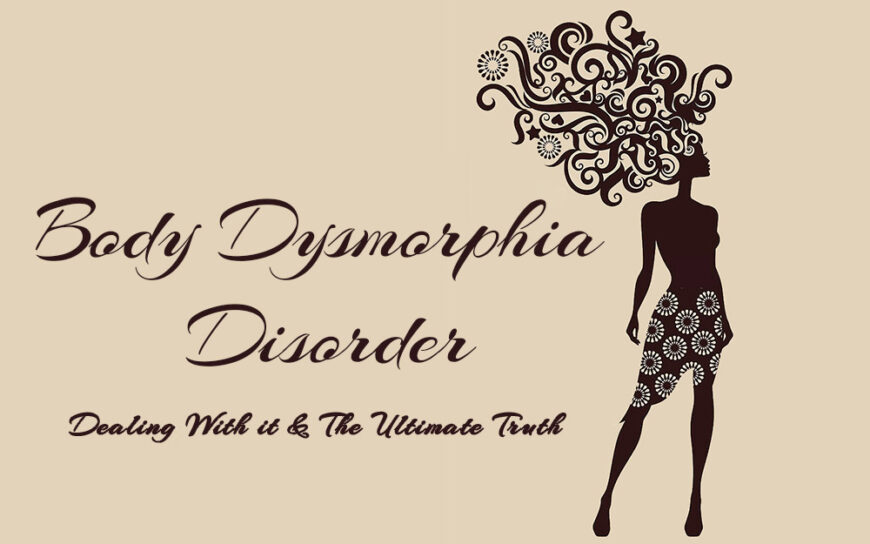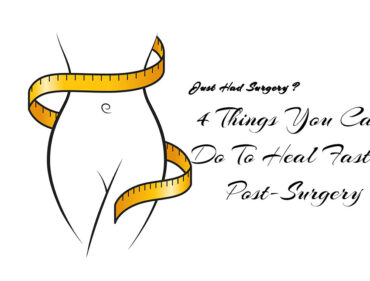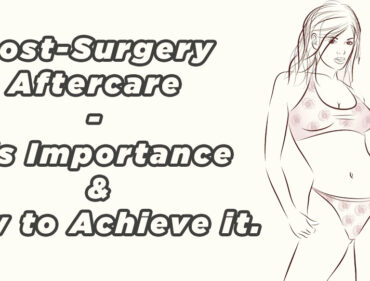Body Dysmorphia Disorder – Dealing With it & The Ultimate Truths.
We worry about our appearance or have come across someone who seems too conscious of their appearance—concluding a flaw with certain parts of our bodies. Depending on your body shape (remember the different body shape types), these perceived flaws might be non-existent or are very non-observable. However, these minor flaws might become the bane of their existence for the BDD sufferer. They become fixated on it. The fixation follows feelings of shame, anxiety, embarrassment, and distress become parts of their everyday lives. Gradually, this graduates into a disorder known as Body Dysmorphia Disorder.
Most often than not, we find ourselves in front of a mirror or any reflective surface, judging and unsatisfied with our body parts or overall appearance in clothes or naked. In addition, we tend to seek beauty approval from friends and family, even strangers. Though there is no known therapy for BDD, the good news is that you should follow the appropriate steps and seek professional help if necessary to overcome it. Let us start with an explanation of this type of OCD.
What are Body Dysmorphia Disorder and Its effects?
This book in this website defines BDD as “a recurring and persistent concern characterized by psychic suffering caused by a possible physical imperfection in appearance. It is a severe psychiatric condition, duly confirmed by neuroanatomical findings, very peculiar repetitive behaviours and specific personalities.”
Simply means, Body dysmorphia disorder (BDD) is a mental illness where one is concerned with a perceived physical flaw that others cannot see. No matter the defect, it exists in mind alone. Hence, the description. It is a common disorder associated with impairment in social functioning, poor quality of life and increased suicidal tendencies.
As stated earlier, people with BDD are generally obsessive about looks. They will go to considerable efforts to conceal any perceived flaws. For example, if the problem is facial, she may use heavy makeup, wide-brimmed hats, scarves, or sunglasses to hide such flaws. Others might see you as vain, but this is not the case. It is somewhat a type of Obsessive-Compulsive Disorder (OCD).
Suffering from BDD, it is very easy to obsess with how you look and spend several hours each day thinking about it. You are preoccupied with body flaws and defects and have a perceived feeling of ugliness. You often think that other people notice your appearance as much as you do and focus on removing or covering the perceived flaw. Some common features for this bodily obsession include weight, nose, wrinkles, acne, complexion, blackheads/moles/warts, hair, breasts, hip, butt or legs, thighs, even genitalia. This obsession can be debilitating because it interferes significantly with any ability to function.
Who Can Be Affected by Body Dysmorphia?
Research shows that 0.7% – 2.4% of every population have people suffering from BDD. It can affect both males and females and starts most times from adolescence. Chris Tronsden, AMFT, APCC of the Gateway Institute, vice president of OCD SoCal, an IOCDF affiliate, is a former patient of this type of OCD. He talks about his struggle with under-eye cycles. His battle with BDD from his teenage years and the various stages he experienced with BDD into adulthood. Plus, some of the behaviours he adopted like camouflaging with different glasses, hats wearing makeup and excessively combing his hair. Besides avoiding specific colours and clothing to cloak certain body areas with the perceived flaws.
In another light, several problems exist you may not recognize as such. You may mistakenly believe that little flaws or nuances may be overlooked and hence dismiss them. They appear to be genuine “problems,” but you think they have little impact on your life and do not worry about them. i.e. ” You are quite concerned about my abdomen because you believe it looks like a pot, but at least you are healthy,” which is how you dismiss the problem. So long as you are not nit-picky about your belly size, it’s not a problem as far as body dysmorphia disorder is concerned. But that does not take away the implications of a large belly area.
In truth, persons with body dysmorphia frequently experience this. You might regard yourself as unattractive or imperfect. Still, you do not believe it will have a significant impact on your life, or at least not as much as it eventually does. You may even regard your looks as an unimportant component of life, and hence do not place the sign on it that it deserves. However, as humans, we place a high value on looks. But when it becomes an obsession, then there is a problem. This disorder is not a respecter of age or gender, and it is a mindset disorder. Hence, the description, mental illness. It does not go away on its own if left unattended.
What Causes Body Dysmorphic Disorder?
The exact cause of body dysmorphia disorder is not known. Initially, it was thought to be related to genetics; however, no specific gene or grounds for genetic correlation was discovered. Certain markers have been identified as most typically the outcome of psychological problems or brain differences, also family dysfunction, childhood trauma, environmental factors, especially if they involve negative social evaluations or self-image, peer pressure or abuse.
Certain factors that may increase the risk of developing BDD may include:
- Negative self-body image.
- Perfectionism.
- Family History.
- Negative life experiences.
- Introversion.
- Social media influence.
Some of the signs or symptoms may include:
- Extreme preoccupation with your appearance or looks: Do you spend close to an hour in front of the mirror just nit-picking your skin, body or body part? A person suffering from body dysmorphic disorder may spend 5-10 hours or at least a day investigating their physical appearance.
- Attempts to hide perceived flaws with makeup, styling, clothes, plastic or cosmetic surgery.
- Avoiding social situations or events.
- Constant comparison with other people.
- Always seeking beauty assurances from other people.
- Compulsive behaviour and low self-esteem.
How to Overcome It?
Does any of these sound familiar? Know that you are not alone. Be aware that other people around you feel the same way. This can be reassuring and comforting. A medical evaluation is advised if you suspect you might be dealing with BDD. It is the first thing to do, which will rule out the possibility of other medical conditions. After that, other medical tests may be carried out as the medical officer sees fit. This diagnosis is based on self-image and its’ foundation in the patient.
The psyche exam assesses risk factors, thoughts, feelings, and behaviour. Social, medical, family, and social health history are also considered. Based on the psyche findings, the medical practitioner plots a recovery pathway for you involving cognitive behavioural therapy (CBT). This consists in teaching you behavioural therapy, healthy ways to reprogram the mind and better ways to compensate or get rid of negative inner perceptions. In extreme cases, the medical officer may decide to administer a drug form of SSRIs (Selective serotonin reuptake inhibitors). These drugs are effective for treating OCD, and they help control obsessions and repetitive behaviours.
However, it is best to note that no treatment will work unless a patient decides to get better. Part of the ways to fast track healing is to:
- Identify and deal with the trigger. If it is a childhood trauma or abuse, forgive yourself, forgive your abuser and sanitize your mind of every negative remnant of the past.
- Join genuine support groups.
- Find positive role models who are genuine and have experienced your pain or who would be patient enough to understand your journey and are willing to go the distance with you.
- Sanitize your physical and online environment. Remove or distance yourself from negative or toxic people.
- Engage in healthy forms and amounts of exercise.
Take home: as debilitating as body dysmorphia disorder might be, it isn’t fatal, especially if you are open to getting help. As stated earlier, you are not alone. Everyone has a body part they are not too proud to show off. It just varies in the way you handle any bodily imperfection. Remember that you are beautiful no matter what the voices in your head say. Go out with positive people who celebrate each other’s uniqueness and positively impact your life.
Do you need nit-pick about your weight or those pesky love handles or any curve flaws? A healthy lifestyle and some amazing shapewear or bodysuits are one way to deal with it without becoming obsessive safely. If you need to accentuate those curves and bring out the ‘chic’ in you without having to worry about flaws, please feel free to make use of our array of shapewear and fashion accessories. As always, cheers to a happier you.




